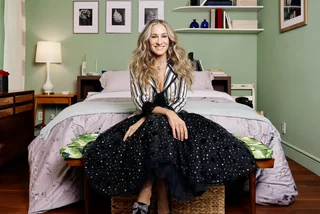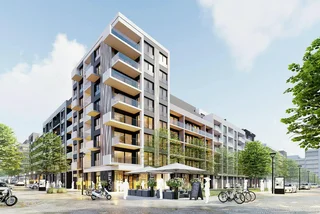Prague’s City Hall is trying to address the growing local housing crisis for the middle class. The city is participating in a developing affordable cooperative housing and recently approved the basic parameters. Construction with city participation has both political and professional support, according to the City Council.
“The availability of owned or rental housing in Prague has long been an unsolved problem. A project for affordable cooperative housing with the participation of the capital city offers a chance for affordable ownership, especially for the middle-income group,” City Councilor Hana Kordová Marvanová (United Force for Prague), responsible for legislation, public administration and housing support, said.
“It is also an opportunity, for example, for representatives of professions that are strategically important for the running and development of the metropolis,” she added.
Currently, new flats are out of reach of many people. Recent research showed that the average Prague citizen would have to work 14.6 years to buy a 70 square meter new flat, for example, if he or she spent money on nothing else. Rents have gone up 20 to 25 percent in the past three years, while sale prices for some flats have risen as much as 86 percent.
Most flats in the planned cooperative projects will be designated for people who cannot attain housing at the current prices of apartments in Prague, but at the same time do not meet the conditions for social housing. The cooperative housing is intended for those who buy an apartment for their own home, as opposed to renting it out or using it for shared accommodation such as Airbnb.
“The project assumes that the city will provide the newly created cooperatives with land on the basis of a building right or lease agreement. The city intends to hold about a third of the apartments, which it dispose of to serve the needy groups of the population,” Kordová Marvanová said.
The city still needs to acquire suitable partners for the project. The parameters approved by the City Council assume that such partners could be, for example, an existing housing cooperative that has experience in both the construction and administration of cooperative residential buildings. The selected partner would arrange the building’s construction and related matters, and also manage it.
“We assume that the selection of the right partner will take place on the basis of a concession or similar tender. Subsequently, the city will conclude a cooperation agreement with the entity,” Kordová Marvanová said.
Architects, representatives of housing cooperatives, banks and developers agreed at a round table moderated by Kordová Marvanová that a cooperative housing project is the right way to address the affordability of housing in Prague.
“For developers, it is also important to accelerate the building permitting processes and to adopt further legislative measures … because the housing deficit is huge,” Kordová Marvanová said.
According to developers, the current housing market situation is partly caused by complicated occupancy permit proceedings. Developers also suggested that part of the tax revenue from developers should be allocated to municipal technical infrastructure, transport infrastructure and civic amenities.
Prague 6 suggested that developers allocate some of the dwellings created in their projects to the city’s needs.
Prague Mayor Zdeněk Hřib (Pirates) also declared support for cooperative housing. According to the Pirates’ statement, the positive aspects of such forms of housing construction can be seen for example, in the experience of Finland.












 Reading time: 2 minutes
Reading time: 2 minutes 


 English
(Proficient)
English
(Proficient)




















